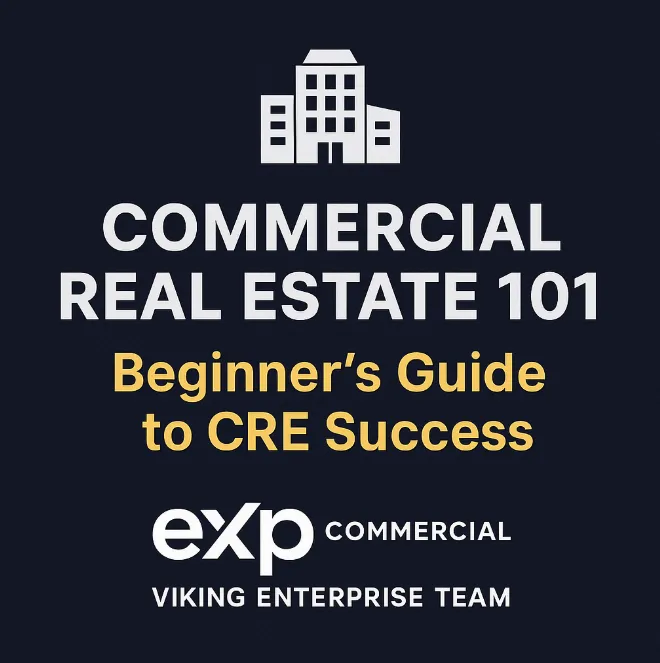
🏢 Commercial Real Estate 101: Beginner’s Guide to CRE Success 📈
🏢 Commercial Real Estate 101: Beginner’s Guide to CRE Success 📈
💼 What Every Beginner Must Know About Commercial Real Estate 🏬
Commercial Real Estate 101: What Beginners Must Know
Getting started in commercial real estate (CRE) can feel overwhelming—but with the right foundation, beginners can quickly learn how to invest, lease, or develop properties that generate long-term wealth. Whether you’re a small business owner looking to buy office space, an investor seeking stable returns, or a developer exploring new opportunities, this guide breaks down the basics of commercial real estate.
🔑 What Is Commercial Real Estate?
Commercial real estate refers to properties used for business purposes rather than residential living. This includes:
·Office Buildings – from small professional spaces to high-rises.
·Retail Centers – shopping malls, strip centers, and standalone stores.
·Industrial Properties – warehouses, logistics hubs, and flex spaces.
·Multifamily Apartments – properties with five or more units.
·Land – raw, improved, or pad-ready sites for development.
📊 Why Invest in Commercial Real Estate?
1.Cash Flow Potential – CRE leases are typically longer than residential, creating more predictable income.
2.Appreciation & Equity Growth – properties often gain value over time, especially in growth markets like Houston, Katy, and Fulshear.
3.Tax Benefits – depreciation, interest deductions, and 1031 exchanges allow investors to optimize returns.
4.Diversification – balancing a portfolio with CRE reduces reliance on stock market volatility.
🛠️ Key Metrics Beginners Must Understand
·Cap Rate – measures return relative to property price.
·NOI (Net Operating Income) – rental income minus operating expenses.
·Cash-on-Cash Return – percentage of annual cash flow compared to invested equity.
·DSCR (Debt Service Coverage Ratio) – how well income covers loan payments.
📌 Financing Options for Beginners
·SBA 504 & 7(a) Loans – great for owner-occupied businesses.
·DSCR Loans – ideal for investors focused on rental cash flow.
·Bridge Loans – short-term financing for acquisitions or repositioning.
·Traditional Bank Loans – stable rates for strong borrowers.
⚖️ Risks to Watch Out For
·Market shifts impacting rent demand.
·Rising interest rates affecting financing costs.
·Vacancy and tenant turnover.
·Unexpected maintenance or capital expenditures.
🚀 Tips for CRE Beginners
1.Start small—consider a retail condo, small office, or duplex-to-multifamily transition.
2.Work with a commercial real estate broker and financing advisor.
3.Always underwrite conservatively—plan for vacancies and unexpected costs.
4.Focus on location—demographics and traffic patterns are key drivers of value.
✅ Final Takeaway
Commercial real estate is one of the most powerful wealth-building tools available today. By understanding the basics—property types, financing options, and investment metrics—beginners can confidently step into the CRE world and set themselves up for long-term success.
https://www.houstonrealestatebrokerage.com/
https://www.houstonrealestatebrokerage.com/houston-cre-navigator
https://www.commercialexchange.com/agent/653bf5593e3a3e1dcec275a6
http://expressoffers.com/[email protected]
https://app.bullpenre.com/profile/1742476177701x437444415125976000
https://author.billrapponline.com/
https://www.amazon.com/dp/B0F32Z5BH2
https://veed.cello.so/FOmzTty6oi9
© 2023-2024 Bill Rapp, Broker Associate, eXp Commercial Viking Enterprise Team
